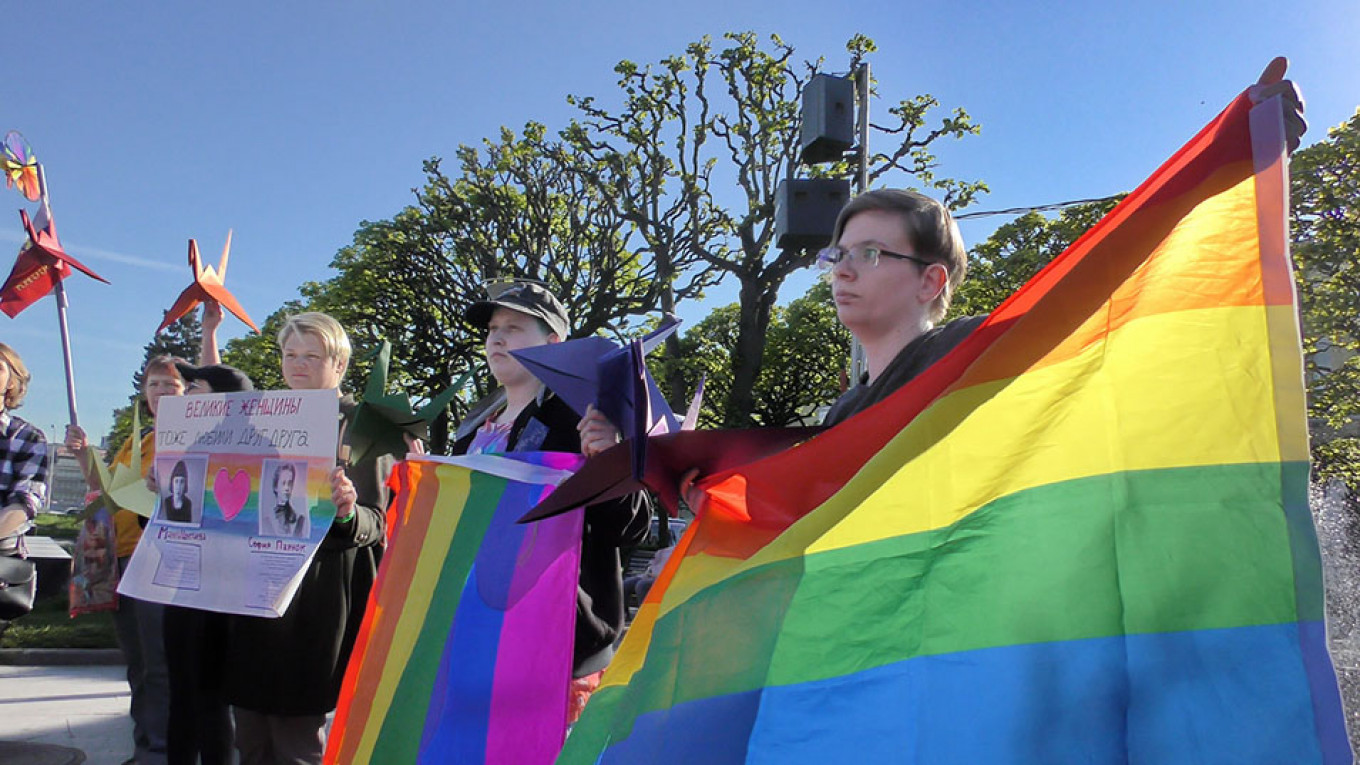
Russians are more likely to oppose having an LGBT neighbor than a neighbor from another social group, according to a new survey released by the independent Levada Center pollster.
Recent public polling has shown surging anti-LGBT sentiment in the years since Russia banned “homosexual propaganda” among minors in 2013.
Respondents to the survey released Wednesday were asked to give one of five reactions to different potential neighbors. The reactions include interest in interacting with the new neighbors, “no special feelings,” awkwardness, suspicion and hostility.
Russian respondents named same-sex couples and members of a religious sect as their least-wanted neighbors, with respondents giving the fewest positive or neutral reactions to these groups.
Most respondents named a “lonely elderly person” and a single mother as their ideal neighbors, with the two groups receiving the highest number of positive reactions.
Families with a disabled member, poor families and African families also ranked in the top five most desirable neighbors, receiving high positives and relatively low negatives.
Russians in the 18-24 age group appear more conflicted toward the idea of LGBT neighbors than in 2006, the survey showed. Young Russians were 5 percent less likely to say that LGBT neighbors would irritate them compared to 2006, but were 15 percent more likely to say they would fear or distrust them.
Levada conducted the survey among 1,625 respondents in 50 Russian regions on April 18-23.
